Pavel Seviarynets: Our Future Is GDL 2.0
16- 27.04.2018, 13:33
- 74,985
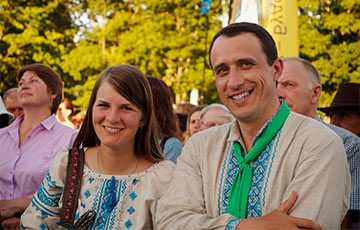
This will be a huge civilization, not limited by just Belarus.
Co-Chairman of the Belarusian Christian Democracy Pavel Seviarynets gave an interview to Charter97.org in the framework of the project "Iron People of Belarus".
- Pavel, it will widely known that your family sticks to precise civic position. Can we say so that you inherited the desire to struggle, that it's in your genes?
- I was born in Vorsha in the family of a journalist and a teacher. My childhood passed in the times of the late USSR, when the empire was falling apart, which predetermined my civic position. My mother Tatsiana, who worked with children and parents at school, and my father Kanstantsin who traveled all around the Vitsebsk region while being a BELTA correspondent, influenced me a lot. They've seen so many things.
They eye-witnessed the dawn and rotting of the Soviet Empire. Conversations in our families have always been free and acute. That is why the very formation of my personality was strongly connected with great interest to Belarus and everything Belarusian.
My mother brought up a sense of justice in me, and my father provided information and outlook. All this was also superimposed on late Soviet rhetoric at school. "We must be heroes, sacrifice ourselves for the sake of the Motherland," - they told us. When it turned out that my Motherland - Belarus, it worked against the communist ideology.
The family moved to Vitsebsk, and my classmates came up with a game: they created whole states on the wastelands in the outskirts of the city. Everyone had their own territory, on which they built fortresses, bridges, warehouses, roads, developed plantations. It would be nice to launch such an educational program for today's children, so that they from the very childhood feel responsible for some piece of land, for the place where they live.
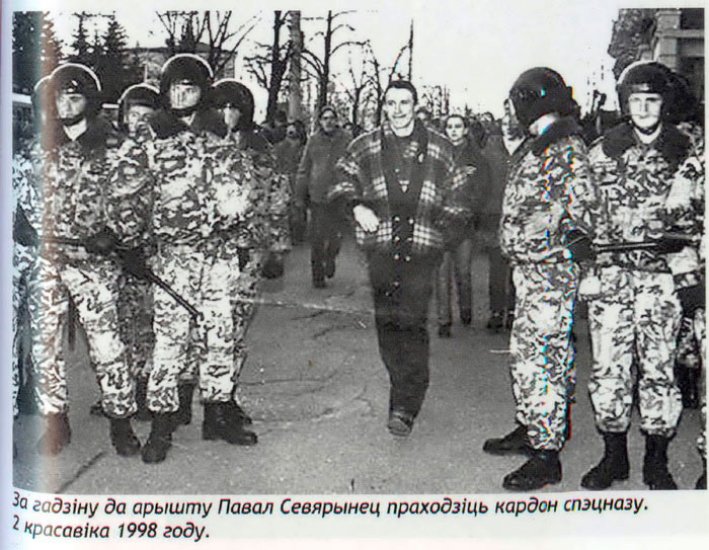
- So you moved to Minsk and entered the geological faculty at the belarusian state University. How come a student-geologist felt the desire to get engaged into politics?
- The love to land and stones transformed into a hobby. I decided to tie my life with geology. I still keep the collection of two thousand rocks, mineral solids and samples of soil from the Vitsebsk area.
Year 1994. Independent Belarus, geology department is opened at he geology faculty. At that time, there was a great range of professors at the faculty. Radzim Haretski, Ivan Sidar, Mikhail Nahorny - the people who ran their fingers through our Belarusian land in the direct sense, and this gave a flaming feeling of patriotism. Real specialists, who traveled a lot, and knew how Belarus differs from its neighbors. The people who felt their mission.
A strong Young Front community was set up at our faculty, about 15 activists. A real team. On the one side – the students of the independence time, on the other - great teachers-patriots.
When I served my very first administrative detention and came out of jail, someone contacted me on behalf of the teachers and passed a whole package of money. if you remember, there was huge inflation in the country back then. The teachers passed me a whole pack with the words "to the Young Front". It was in 1997.
- Amazing solidarity between students and teachers.
- Absolutely. In 1996, we could take the students to the square where impeachment to Lukashenka was announced, right from the disco dancing party, at the call of the teachers. By the degree of oppositionism, the geology faculty could be compared with the history and philology faculties. However, if there were humanitarians, we were doers-technicians. I recall out team of teachers and students with warmth.
- Many associate you with the Young Front. How did you get into this organization?
- In late 1994 I started speaking only Belarusian. I was helping a Geo-faculty student to carry her bag to the station. We talked, and she said, like, if you are such a patriot, why don't you speak Belarusian? I was going to tell her everyone around are speaking Russian, but shut my mouth just at the right moment. And said I would speak Belarusian since tomorrow. She laughed, like, you liar. I had a thought, like, she's playing chicken. However, since November 19, 1994 I started speaking Belarusian always and everywhere.
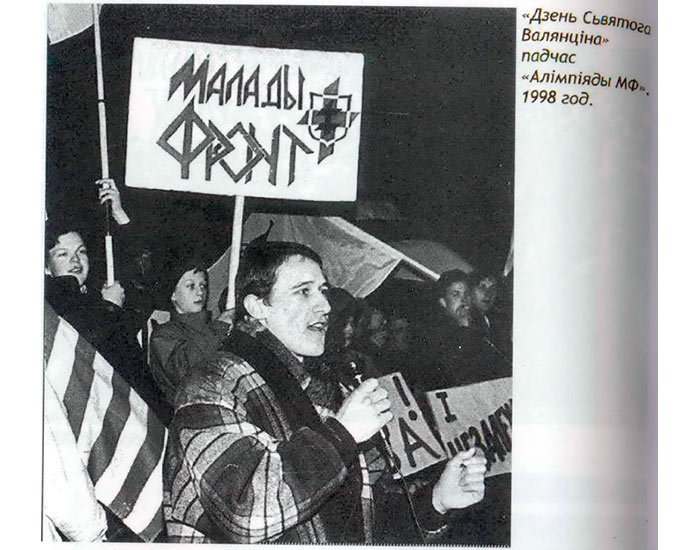
How did my activity in the Young Front begin? I came to the office of the Belarusian People's Front with my fellow geologists, where the youth wing of the party was gathering. A few dozen people, an ordinary youth cell with the party. We were perplexed: the Belarusian People's Front is a multi-thousand-strong organization, and here is a small group of people.
And our team decided to make this movement massive. There I met Viachaslau Siuchyk, Aliaksei Shein, Yauhen Skochka, Aliaksei Shydlouski, Yury Hubarevich, Vitaly Rymasheuski, Aliaksei Yanukevich. Literally, for a year and a half, during street actions in 1996, we were able to create the basis of the Young Front. More and more people joined in. Today, it's impossible to list everyone.
It was a time of real romance. Imagine that there was no Internet or mobile phones, but it was possible to negotiate meetings and protest actions. The meetings were held every Thursday, we invented really creative and risky things.
In March 1997, Lukashenka issued a decree under which the white-red-white flag was regarded as a non-registered symbol. On th enext day, we hanged out a hundred of national flags in Minsk streets - "The city is ours!"
In February 1998, Winter Olympics were held in Nagano, Japan. The Young Front decided to hold own Olympics. The disciplines were various - activists played cards with journalists, organized running contests in Minsk. There were shooting competitions named after Lee Harvey Oswald (the only official suspect in the assassination of US President John F. Kennedy - comment by Charter97.org). After such "hooliganism" older colleagues from the Popular Front and the US Embassy explained to us that this was not quite a correct name and it would be better to hold a competition named after Ihnat Hryniavitski (Belarus native "narodovolets" who killed Emperor Alexander II - comment by Charter97.org) . But it was too late, the shots already sounded, more than 100 people took part in the competition.
ORT (The Public Television of Russia, now the First Channel – comment by Сharter97.org) even made a report about this competition, after which Pavel Sheremet and Zmitser Zavadzki had to communicate with the KGB assault group, which stormed the ORT office in Minsk, demanding to give them the video record to start a criminal case against the Young Front.
Yauhen Skochka was engaged in preparation of athletes, who later went independent and created their own organization "Krai". The "Krai" members studies the basics of conspiration, dealt with sportive activities and security of the participants of the actions held by the democratic position.
Programmers from the Young Front cooperated with the free hackers from Ukraine and attacked the Russian imperial websites together.
- Why is the once active organization coming through difficult times today?
- The Young Front is an organization with a 20-year history. the movement survived different times, but I want to note there have been milestone actions int he last two years.
Propagandist Solovyov arrived - he was met with the action of the Young Front; the mural "Friendship with Russia" or the monument to Lenin unveiled - another action comes along. Let us recall the defense of Kurapaty, when the activists of the Young Front stood in the gap behind the stove first - and achieved victory.
Yes, once the organization had many thousands activists and was strong. But the regime did not look at it idly. The BRYU appeared, Lukashenka began to buy young people. Credits, bonus cards, benefits, rates for functionaries - it is clear that the state has quite different possibilities. None of the Young Front activists received salaries, all worked on volunteer basis. Nevertheless, the movement from 1997 - until the mid-2000s remained massive.
I would like to recall the campaign "Belarus - to Europe", when we conducted pro-European actions in 114 cities of our country. The activists distributed European symbols, held marches and pickets, collected signatures, washed sidewalks with liquid soap, so that the Belarusians learned to live in European style.
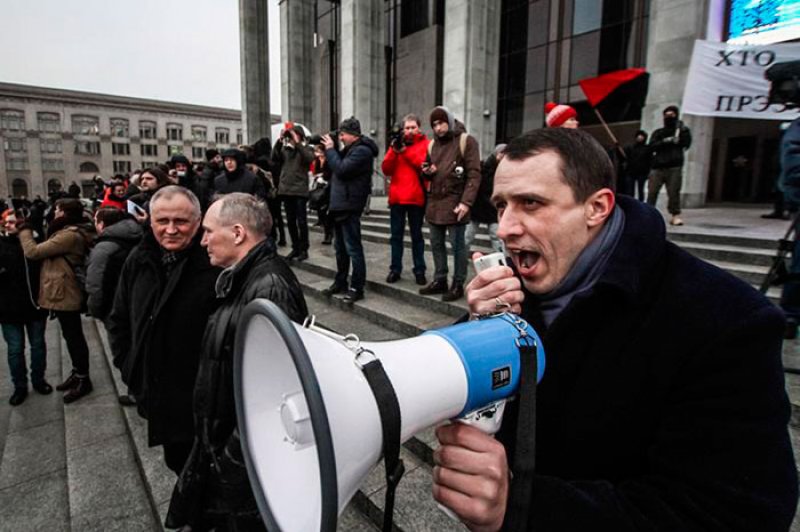
In the end, the regime began to put pressure on every young man who took part in opposition rallies. As soon as an activist was spotted at a protest action, even signs a petition - a person was under supervision. People with certain IDs come to the place of work, study, to friends, parents - pressure begins, which not everyone can withstand.
Plus imprisonment, plus threats, high-profile lawsuits. Everybody knows perfectly well that for participation in protest rallies one can spend half a year under numerous administrative arrests, or get a criminal case. Thousands of the Young Front members have been through this for 20 years. Glory to God, as in today's opposition there are people who are ready to sacrifice themselves for the sake of others. During street actions, the number of activists is increasing, as it was not only in the Young Front, but also in other organizations - Zubr, Youth BPF, Young Hramada and others.
- So, you don't think that "at our time the grass was greener, the youth was more daring, and the actions were better"?
- Of course. I have great respect for what youth activists are doing today. Just in our time it was more free. The regime was not as tough as it is today. There was an opportunity to take to the streets hundreds and thousands of young people.
Today, the regime acts differently and it needs to be understood that the time of tightened screws has come.
- You have gone through dozens of administrative detentionsm, two big prison terms. How did you manage to go through such challenges and win in the end?
- Any challenge is a fire. Wax melts in it, but clay gets hard as stone. If a person has a desire to fight, challenges will only make them stronger. For me, prison became real school and hardening.
God sends such difficulties into the life of man so that he can stop, reflect, comprehend his calling, his mistakes, repent of what he did wrong. Of course, I would have never wanted to go to jail, but when I have to - then it turns out that this is a blessed time in the spiritual plan.
In addition, the support of close people and a wave of solidarity of others is felt. It's inspiring.
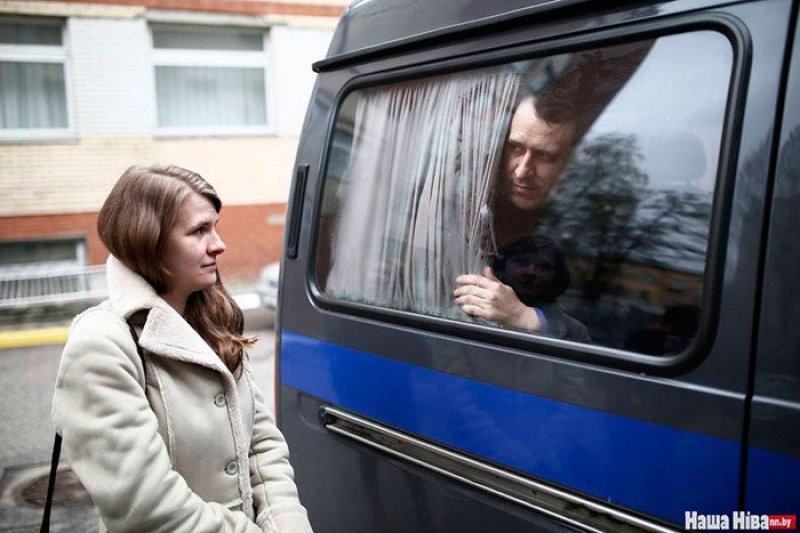
- You participated in the Square-2010 events directly. What place does this time period occupy in your life?
- These were very significant events for me and our country. I think that we made a big mistake concentrating on the campaign and not paying enough attention to the action in the Kastrychnitskaya Square. We, the Christian Democrats, have done everything possible to mobilize, hoping that the people will come out to the Square and decide everything themselves.
I repeat that this was the biggest mistake. We did not have the strength and preparation to maintain control over the situation. Our team is responsible for this mistake.
But the coming out of dozens of thousands tot he Square-2010, after the dominance of the Lukashenka regime, repression - was a real miracle. I want to note the solidarity campaign, which despite the interrogations, searches and prison terms of the opposition leaders was simply incredible. The silent actions, that began immediately after the trials of political activists.
I regret that this time is not fully understood and is waiting for its researchers. The Belarusian nation showed that it is strong, and the words "Long Live Belarus!" sounded special in late 2010 - early 2011.
- How would you assess the current state of the Belarusian opposition?
- On the one hand, the state of the Belarusian opposition is deplorable. There are fewer activists, there is no such broad support among ordinary people. But you should not blame the opposition for this. There are reasons for all this. Fatigue. There is such an approach, saying "you have been fighting for 24 years, but where is the result?". But the life of a person who comes into opposition becomes a struggle at two or three fronts: when you struggle with the regime, you get problems, detentions, fines, loss of work, tension with your relatives.
On the other hand, we see people who bear the brunt of the struggle for decades, despite everything, become pioneers, followed by others. I admire such people. These are talented people who could have realized themselves in other spheres: to become successful businessmen, creators, stars, to develop in a personal plan abroad. No, they continue to struggle.
The absolute majority of activists do their work for free. They do not acquire material goods, but lose them. Today's oppositionists in the majority live not on "grants", but in difficult conditions, limited by the regime, they earn somewhere to support themselves and their families. At the same time, they remain true to their ideals.
I think that monuments will be erected to many of them, and books will be written about their lives. Unfortunately, these people are now undervalued. Activists who repeatedly appear at protests should be respected, supported and protected. These are the real heroes of our time. Political prisoners in prison, journalists who speak the truth despite the great risk for their freedom, and sometimes life; talented bloggers make a whole generation that will remain in the history of Belarus.
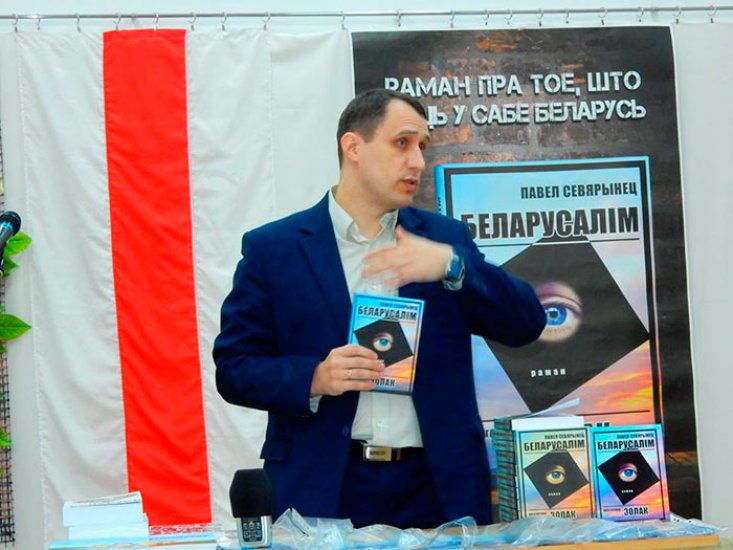
- The fate of an oppositionist is not the most attractive one. Have you ever had a thought to leave all this, to go to the "retirement" and live a peaceful life?
- I can tell you I never took such thoughts seriously. When I repented and came to the God, I adopted serious attitude to the Bible words. "Each one should remain in the situation he was in when he was called...". If I was a leader of the Young Front, a young man who is struggling for Belarus - this means God found me here and there's work to do here.
My parents were very worried about me when I first got to the Valadarski Street detention center in 1998. However, I had the full support of the whole family upon release. No longer was the question of "needed - not needed", maybe the conversation was about the fact that sometimes it's worthwhile to be more cautious.
When I met the love of my life, Volha, she supported me. If next to you is a 100% devoted person, beautiful, strong - there is no need to look for other ways. When associates around you, ready to support you, a society looking at you with hope - all questions disappear. We must go and fight.
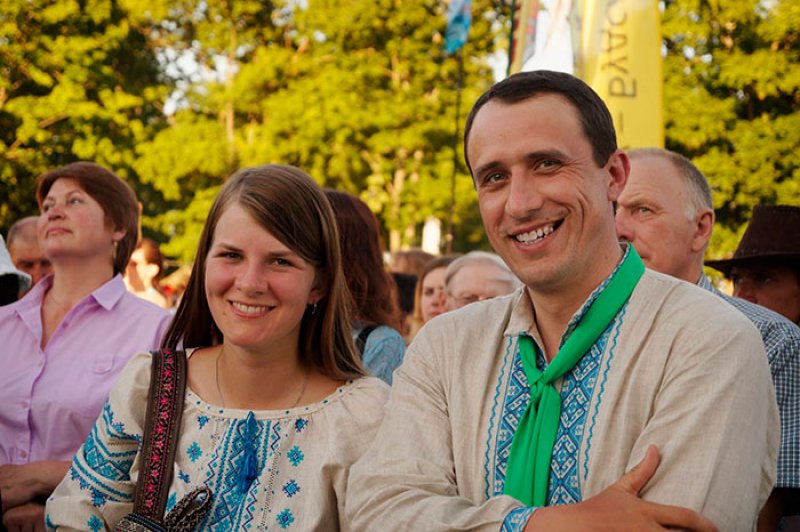
- We know Pavel Seviarynets as a brilliant politician with ardent speeches at protest rallies. And what kind of a family man are you?
- At home I'm simpler, probably (laughs). We try to divide our domestic duties. To date, I'm able to spend more time with the child than most Belarusian men can afford. I am a writer and I earn money by writing books.
My working day is not standardized, my workplace is a computer at home. I can always come and calm the child, lull him, or give him a bath if necessary. The family is part of that real life that will remain after us. We decided not to stop on one Frantsishak, but we want to bring up a whole team of Seviarynets's who will continue our work.
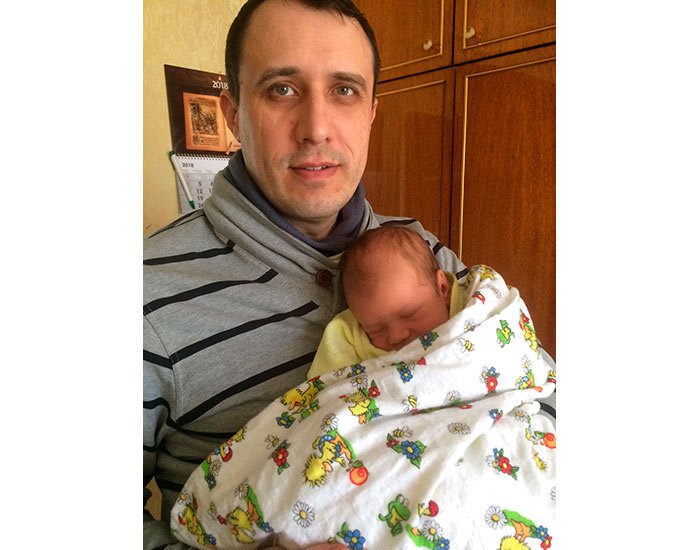
- Pavel, you told us that you make a living on literary creativity. And what books influenced your life?
- The first book is the Bible. It was with the New Testament, read at the "Valadarka" in 1998, that changed my life. Secondly - it's Vasil Bykau's books. This is the school of life, the basis of morality, and also close for every Belarusian. And also books by Uladzimir Karatkevich. This is the romance and beauty of our land.
- After talking with you, one get the impression that you are 100% sure that Belarus will become free. Are you a convinced optimist or know something that others do not?
- When I was not yet a believer, it was youthful enthusiasm, on which I managed to make it for several years. Then in my life came prison, betrayal, disappointment. But it was at this moment that God found me. After I accepted Christ - all questions have disappeared. I know people who work miracles with faith. This is both known and completely inconspicuous people.
In my opinion, people of faith are the prototypes of those Belarusians who created the Polatsk principality and the Grand Duchy of Lithuania. Just at the time when our ancestors fought for freedom and independence, they created great Belarusian civilizations on Christian principles.
- And what historical figures inspire you?
- First, of course, Jesus Christ. Man and God, who gave Himself to death for us.
If we talk about Belarus, throughout our thousand-year history there have been individuals fwhom it is worthwhile to take as role models. Starting from Yefrasinnia of Polatsk and Cyril of Turau - real heroes of faith.
Also, Francysk Skaryna, it would seem - the first printer, not a politician, not a military leader. But it was he who changed the whole epoch. Chancellor of the GDL Leu Sapieha, Kastus Kalinouski. Of my contemporaries, I would call Zianon Pazniak. In my understanding, what Pazniak and his team from the Belarusian People's Front did is the realization of the dream of Belarusians of the 20th century. Pazniak is a man of faith, a principled one, perhaps sometimes overly categorical, but, probably, the time demands it.
- How do you see Belarus of the future?
- Belarus of the future is the Grand Duchy of Lithuania 2.0. A huge civilization, which is not limited to Belarus, the country in the heart of Europe, the informational, spiritual and cultural capital of the region. Belarus of the future influences both the West and Russia, as it was during the time of the Grand Dukes. A country that believes in God and respects a person, a country where people are ready to defend their homeland in the way Western diplomats wrote about it: "You can talk with the Litvin people about anything, but God forbid you to offend their country."
Throughout history, we have given our geniuses to Poland, Russia, the United States, Israel. Our potential is simply endless. God has invested so much in this country that it is difficult to imagine. Belarusians are the nation of winners. If we look at our history, we can recall hundreds of examples. Starting from the saints and battles - ending with sports and books.
I believe that faith in God and love for our Motherland is a universal motor for the Belarusian Renaissance. Sooner or later the victory will be ours.
I also believe that the state of Belarus depends not so much on the authorities, on the empire, on their strength. It all depends on the state of our hearts.
When we are ready ourselves - God will transfer this country into our hands. So far, we are not ready to take responsibility for the fate of our country. It is necessary to do a lot more so that the potential of the Belarusian opposition - as a moral force in the first place - is fully revealed.
The fact sheet by Charter97.org
Pavel Seviarynets was born on December 30, 1976 in Vorsha. In 2000 he graduated from the belarusian State University, having obtained a diploma of a geological engineer.
From 1997 to 2004 he was the founder and head of the Young Front. Since 2004 - co-chairman of the Belarusian Christian Democracy. He spent more than 5 years behind bars, including administrative detentions and focrible labor at specialized facility under political sentences.
He was the founder of the educational projects "DJs of Revival" courses, and "Schools of Belarusianity", published a series of musical albums "Belarusian Christian Hits".
He is the author of the books "DJs of Revival", "The Young Front Generation", "To My Brother", "I Love Belarus", "Letters from the Woods", "Belarusian Middle of Nowhere", "Hundred Individuals of Christian Democracy", novel "Belarusalim". Laureate of literary prizes named after Ales Adamovich and Francysk Aliakhnovich, the prize "For Freedom of Thought" named after Vasil Bykau.
Pavel is married and has a son.









